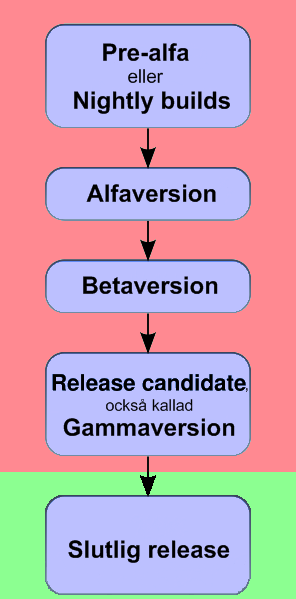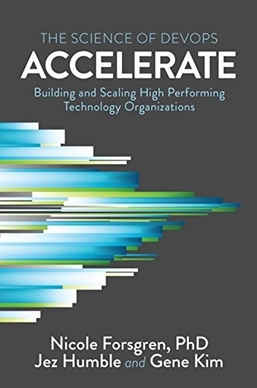Related Research Articles
A source-code-hosting facility is a file archive and web hosting facility for source code of software, documentation, web pages, and other works, accessible either publicly or privately. They are often used by open-source software projects and other multi-developer projects to maintain revision and version history, or version control. Many repositories provide a bug tracking system, and offer release management, mailing lists, and wiki-based project documentation. Software authors generally retain their copyright when software is posted to a code hosting facilities.

The Linux Foundation (LF) is a non-profit organization established in 2000 to support Linux development and open-source software projects. In addition to providing a neutral home where Linux kernel development can be fostered, the LF is dedicated to building sustainable ecosystems around open-source projects to accelerate technology development and encourage commercial adoption.
Azure DevOps Server, formerly known as Team Foundation Server (TFS) and Visual Studio Team System (VSTS), is a Microsoft product that provides version control, reporting, requirements management, project management, automated builds, testing and release management capabilities. It covers the entire application lifecycle and enables DevOps capabilities. Azure DevOps can be used as a back-end to numerous integrated development environments (IDEs) but is tailored for Microsoft Visual Studio and Eclipse on all platforms.
A change-advisory board (CAB) delivers support to a change-management team by advising on requested changes, assisting in the assessment and prioritization of changes. This body is generally made up of IT and Business representatives that include: a change manager, user managers and groups, product owners, technical experts, and possible third parties and customers.

GitHub is a developer platform that allows developers to create, store, manage and share their code. It uses Git software, providing the distributed version control of Git plus access control, bug tracking, software feature requests, task management, continuous integration, and wikis for every project. Headquartered in California, it has been a subsidiary of Microsoft since 2018.

Release management is the process of managing, planning, scheduling and controlling a software build through different stages and environments; it includes testing and deploying software releases.
DevOps is a methodology in the software development and IT industry. Used as a set of practices and tools, DevOps integrates and automates the work of software development (Dev) and IT operations (Ops) as a means for improving and shortening the systems development life cycle. DevOps is complementary to agile software development; several DevOps aspects came from the agile way of working.
Continuous delivery (CD) is a software engineering approach in which teams produce software in short cycles, ensuring that the software can be reliably released at any time and following a pipeline through a "production-like environment", without doing so manually. It aims at building, testing, and releasing software with greater speed and frequency. The approach helps reduce the cost, time, and risk of delivering changes by allowing for more incremental updates to applications in production. A straightforward and repeatable deployment process is important for continuous delivery.

The Windows Package Manager is a free and open-source package manager designed by Microsoft for Windows 10 and Windows 11. It consists of a command-line utility and a set of services for installing applications. Independent software vendors can use it as a distribution channel for their software packages.

Datadog, Inc. provides an observability and security SaaS platform for cloud applications. The platform helps corporations monitor servers, databases, software tools, and infrastructure services.
Docker is a set of platform as a service (PaaS) products that use OS-level virtualization to deliver software in packages called containers. The service has both free and premium tiers. The software that hosts the containers is called Docker Engine. It was first released in 2013 and is developed by Docker, Inc.
Rocket Software is a privately held software development firm founded in 1990. Using the IBM Z, IBM Power, and embedded database platforms, Rocket provides predictive analytics with deep data, develop AI and machine learning capabilities, and design mobile and browser applications. Rocket operates in markets including the financial, banking, health care, government, insurance, aerospace, auto manufacturing, and retail industries. Rocket has a business partnership with IBM that began in 1994 with a licensing agreement for Rocket QMF tools. The company is headquartered in Waltham, Massachusetts, USA.
GitLab Inc. is an open-core company that operates GitLab, a DevOps software package that can develop, secure, and operate software. The open-source software project was created by Ukrainian developer Dmytro Zaporozhets and Dutch developer Sytse Sijbrandij. In 2018, GitLab Inc. was considered to be the first partly-Ukrainian unicorn.
Terraform is an infrastructure-as-code software tool created by HashiCorp. Users define and provide data center infrastructure using a declarative configuration language known as HashiCorp Configuration Language (HCL), or optionally JSON.
Buddy is a web-based and self-hosted continuous integration and delivery software for Git developers that can be used to build, test, and deploy web sites and applications with code from GitHub, Bitbucket, and GitLab. It employs Docker containers with pre-installed languages and frameworks for builds, alongside DevOps, monitoring and notification actions.
Microsoft, a technology company historically known for its opposition to the open source software paradigm, turned to embrace the approach in the 2010s. From the 1970s through 2000s under CEOs Bill Gates and Steve Ballmer, Microsoft viewed the community creation and sharing of communal code, later to be known as free and open source software, as a threat to its business, and both executives spoke negatively against it. In the 2010s, as the industry turned towards cloud, embedded, and mobile computing—technologies powered by open source advances—CEO Satya Nadella led Microsoft towards open source adoption although Microsoft's traditional Windows business continued to grow throughout this period generating revenues of 26.8 billion in the third quarter of 2018, while Microsoft's Azure cloud revenues nearly doubled.

Windows Terminal is a multi-tabbed terminal emulator developed by Microsoft for Windows 10 and later as a replacement for Windows Console. It can run any command-line app in a separate tab. It is preconfigured to run Command Prompt, PowerShell, WSL and Azure Cloud Shell Connector, and can also connect to SSH by manually configuring a profile. Windows Terminal comes with its own rendering back-end; starting with version 1.11 on Windows 11, command-line apps can run using this newer back-end instead of the old Windows Console.
Cloud native computing is an approach in software development that utilizes cloud computing to "build and run scalable applications in modern, dynamic environments such as public, private, and hybrid clouds". These technologies, such as containers, microservices, serverless functions, cloud native processors and immutable infrastructure, deployed via declarative code are common elements of this architectural style. Cloud native technologies focus on minimizing users' operational burden.

Accelerate: The Science of Lean Software and DevOps: Building and Scaling High Performing Technology Organizations is a software engineering book co-authored by Nicole Forsgren, Jez Humble and Gene Kim. The book explores how software development teams using Lean Software and DevOps can measure their performance and the performance of software engineering teams impacts the overall performance of an organization.
npm, Inc., is a company founded in 2014. It was acquired by GitHub, a subsidiary of Microsoft, in 2020. The company maintains the npm package manager for Node.js and the npm Registry, which hosts software packages and version control based on Git.
References
- ↑ Chan, Rosalie. "GitHub just hired a top DevOps researcher away from Google Cloud". Business Insider. Business Insider. Retrieved 25 October 2020.
- ↑ Kniskern, Kip (5 March 2020). "Nicole Forsgren, PhD to move from Google Cloud to new role as VP of Research & Strategy at Microsoft's GitHub". OnMSFT.com. Retrieved 25 October 2020.
- ↑ Yu, Alison (25 May 2021). "Introducing Developer Velocity Lab – A Research Initiative to Amplify Developer Work and Well-Being". techcommunity.microsoft.com. Retrieved 3 December 2021.
- ↑ Price, Mary (2020-02-04). "Accelerate: The Science of Lean Software and DevOps: Building and Scaling High Performance Technology by Nicole Forsgren, PhD, Jez Humble, Gene Kim, Steve Bell, and Karen Whitley Bell Receives Shingo Publication Award". Shingo Institute. Retrieved 2023-10-26.
- ↑ Chan, Rosalie. "GitHub just hired a top DevOps researcher away from Google Cloud". Business Insider. Retrieved 2023-10-26.
- ↑ Cancialosi, Chris. "How To Assess Your Organization's DevOps Readiness". Forbes. Retrieved 25 October 2020.
- ↑ Narcisi, Gina (20 December 2018). "Google Cloud Buys Digital Transformation, DevOps Research Firm DORA". CRN. Retrieved 25 October 2020.